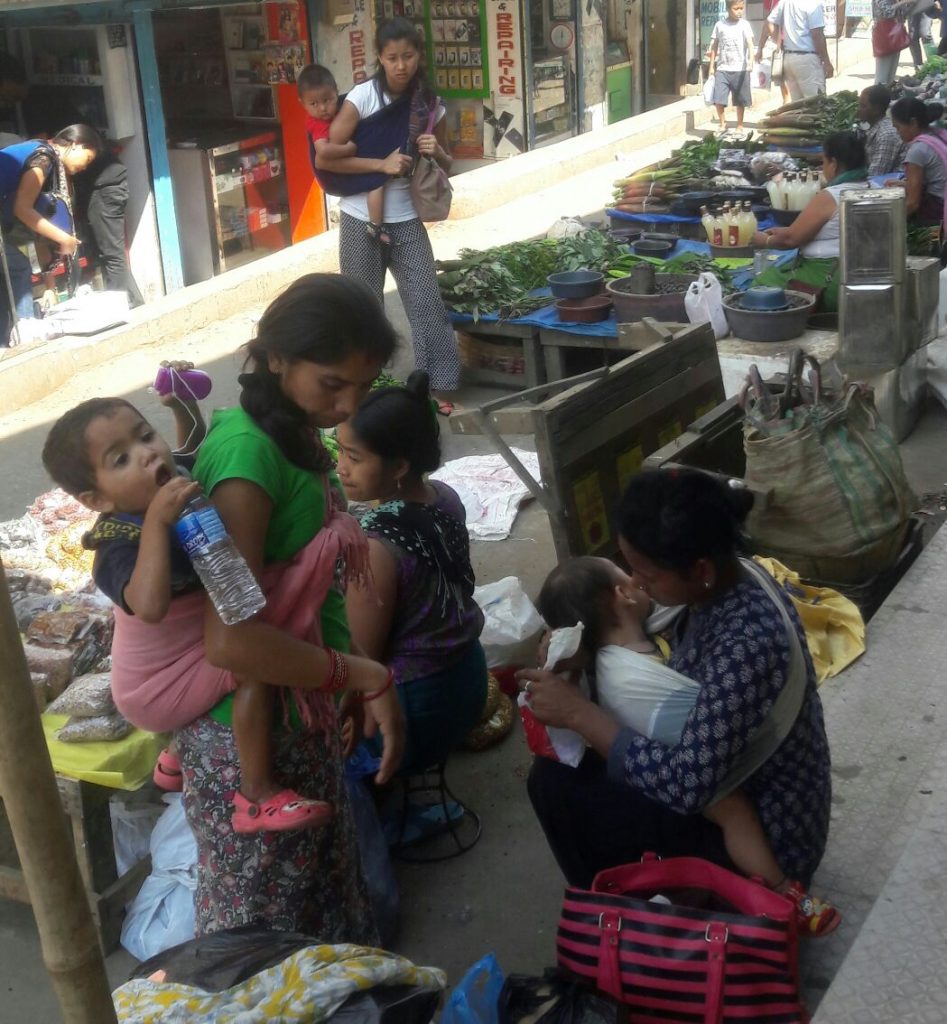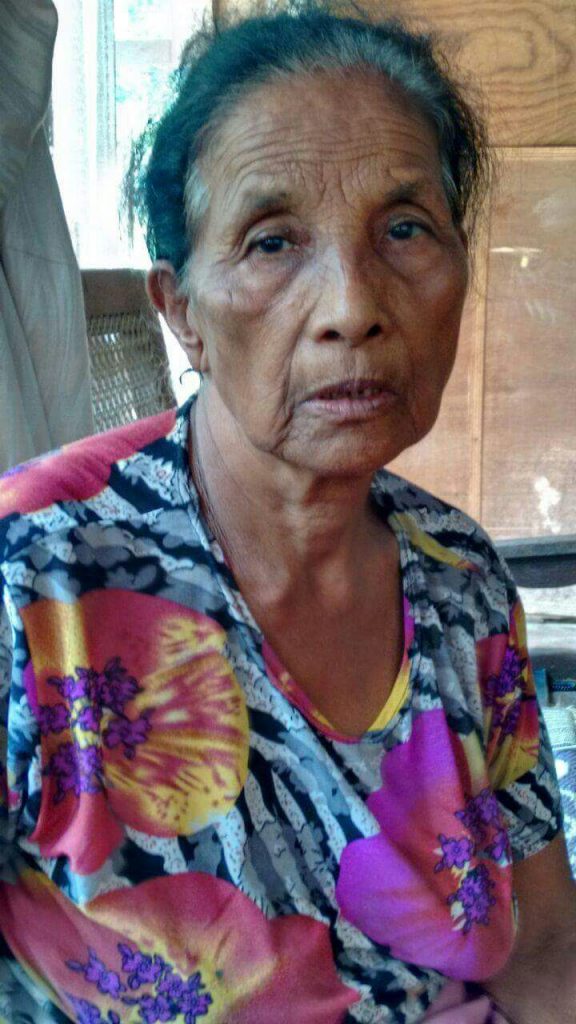By Renemsongla Ozukum| The Naga Republic
The international women’s day is being celebrated all across the globe today. What can Naga society and their women celebrate? Are we going to celebrate the story of the five female candidates that did not get elected during the 13th General Elections? Or, as reported in the Newspapers, shall we rejoice over the successful expulsion of four women from the Changki Village Council over matters related to elections? My response is “Ayaakho Ojala,” a sigh of deep pain and lament in Ao language. Naga women cry out Ayaakho Ojala as their identity and contributions go unrecognized, unaccounted and unprotected. Ayaakho Ojala is the ultimate angst that is often invoked by women. It signifies a mother’s strength and comfort. As a woman utters it, she finds relief and soothing from the pain of the male-constructed social weight that seeks to crush her down. As Naga women celebrate the international women’s day, may we remain comforted by the spirit of Ayaakho Ojala.
While attending a regional capacity building training, a facilitator asked me, “Ren, how come you have violence and abuse in your state? Unlike our struggles, we from the mainland Indian sisters always envy that you all are happily attired with your traditional costumes and headgear – singing and dancing almost every day with no domestic and community concerns to worry about.” Sejaal was right in one way. But her remark opens up many windows for interpretation. Oppression and discrimination manifest in different layers according to contexts and cultures. Instead of feeding people with correct information that are derived from empirical realities and investigative research, main stream media and state sponsored programs depict a rosy and exotic picture of people in Nagaland. The story of Naga women is enveloped in the narratives of violence, struggle and, hope. Where do Naga women stand today?
The Embodiment of Ayaakho Ojala: Women in Nagaland are engaged in the business of “18 hour ‘house-wife’ activities.”About 65% of Naga women are directly engaged in forest dependent farming, food producing, and livelihoods such as weaving, craft, vending, and foraging activity. Traditional attitudes still exist. It is below the man’s dignity to attend to childcare, tend home garden, collect water from the pond, vending the cash crops, etc. Thus from the time a woman wakes up, she carries the children in her every inch of movement. The dawn to dusk activities of a woman circles from feeding the children to taking them to school, workplaces, bazaar, garden and rice fields, till sleeping together at night.
Before the rooster crows, many women would begin their day with prayer. The feeling of guilt and shame hits hard if a woman wakes up after the sunrise. By the time the sun rises by 5 am, Naga women start to cook, clean, and feed the household including the domestic animals. Approximately from 5am to 9 pm, the average 18 working hours per day is therefore unaccounted in the GDP index of the male-based Naga economy. The statement “I am a housewife, staying home doing nothing” is often accepted as a norm. Point 5 (gender equality and women’s empowerment) of the 2015 UN Sustainable Development Goals reiterate this gender gap.

Women not only care for their young ones but they are also expected to work and toil to earn a living
The denial of basic rest and recreation leads a burnout woman to sigh Ayaakho Ojala all the more. If a physical map of Nagaland state were to be drawn, this can be made possible by the physical scars of women alone. In a male-dominated street market, rural and conservative women are not comfortable buying intimate needs such as brassier and panty. Women particularly in unorganized sector with credit linkages lack leadership role models and development skills. Unless sustainable development and protection policy is aggressively discussed and implemented collectively in the state, the contributions of the women and girls will remain “restricted, reduced, and reversed” leaving us in a perpetual condition of Ayaakho Ojala.
Women’s Health and Governance: Naga women are victims of a tradition that upholds stoicism. Most of the tribal ethos glorify women who are willing to accept, bear, and rationalize domestic violence. By extension, women do not need health care because they never complain and it is normal for them to suffer and bear the pain. Due to low priority given to accessing professional health care, women often resort to remedies of their own such as herbs, mustard oil, vicks, and fire-places, etc. A man falling ill or facing violence is considered a tragedy. But if the same thing happens to a woman it slips everybody’s eyes and is taken for granted.
Despite increasing numbers of domestic abuses and violence against women, the state and traditional institutions are not able to respond effectively and offer remedies. For instance, the existence of state sponsored shelter home helpline attached to civil hospitals in the state called SAKHI and Dial 181still lack adequate service in addressing the challenges squarely. The Naga people are taxed to the point that even a police personnel is unable to wear a “decent under garment.” In fact, bra and sanitary napkins are sidelined in gender budgeting. I have seen use-and-throw baby diapers being reused in many low income families.
Identity Questions Related to Women: Women’s identity, their contribution and social roles often go unrecognized. Major legal decision making bodies such as the municipals and legislative assemblies do not have women representatives. The interpretation and execution of powers related to the state sponsored legal and traditional bodies traditional bodies such as customary courts, village councils and panchayats are all done by male representatives. All the sixty (60) MLAs elected during the 13thgeneral assembly (February 27, 2018) are male. Despite being a “Christian belt,” similar majority male representation in decision making body system are existing in two other states within North East India respectively.
The recent election result depicts the failed state of affairs, how women are singularly undermined. In Nagaland, out of 193, there were only 5 women contestants and none of them got elected. Apart from the men and money driven election system which is viewed as a rich man’s gamble, of 193 candidates that contested, 114 (59%) of them were crorerpatis as indicated in the media. Like the rich during the time of prophet Amos (Amos 8:6), Naga men compete to pay ten to fifty thousand rupees for a single vote (eye witness stories from the recent 13th General Election in Nagaland). On the contrary, most Naga mothers are worried about paying house rent and school fees. Some are struggling to acquire basic needs of food and shelter.
In addition, Nagaland is the only State within the 26 states in India that does not implemented policies and Act passed by the parliament such as the Street Vendors Act due to none conduct of Municipal Election since 2006. In February 2017, the Urban Legislative Body for Municipal affairs tried to conduct election however 33 percent women’s reservation was denied and the spark of violence escalated by imposing public prohibitory under 144 CrIPC within the state, leading to the eventual death of two youth. Besides undermining women’s capabilities to effectively participate in decision making in the public sphere by the men folk, women themselves have expressed their lack of motivation, and confidence to take up leadership roles. Many of them have internalized the tribal prerogative of male leadership and proper understanding about social systems and development schemes that are designed to empower women.

An elderly woman
A Society that Recognizes the Worth and Dignity of Women: As we see in the book of Job, there is no radical transformation happening in Job’s thinking as long as he continued to give burnt offering to God and ask for God’s forgiveness. But as Job begins to intercede for “others,” he sees God and his surroundings differently. When Job confessed and prayed for others, he saw himself in a different way and despised his sins (Job 42:1-6). The confession leads Job to repentance and moves him to a level of transformative action. He brings in and recognizes his daughters who had been dining in different places. Neighbors recognized the daughters of Job as the most beautiful women in the land of Uz, their community. They had names of their own as identity—Keziah, Jemimiah, and Keren-Happuch.
Finally, the daughters had protection of the father’s inheritance that they are no longer are under the mercy of their brothers for resources. Moreover, the preoccupied mind of Job, who spends time managing “his own wealth” is drastically transformed by the reconciling act of dining (eating bread together= the house of bread, Bethlehem) with Job’s kith and kin. The dining event in his home indicates that sharing of resources with “others” helps rebuild relationship and effect reconciliation with brothers and friends who were once disassociated. When Job recognized and embraced his “other” relatives, the relatives in turn shared their resources and reconciled by giving Job “rings” of reconciling act. The genuine “confession and repentance” of the “righteous Job” made the inhabitants of the land of Uz to realize the biblical mandate of the “Bethlehem” and “Jubilee.” Such a beautiful act! Do we need to confess like Job?
The anguish and laments of Naga women are neither bubbles nor vainglory. Since biblical times women were the community participants. So also Naga women were there when the village was formed, gave birth, and nurtured societies. Until women are recognized as daughters of the land, Ayaakho Ojala will continue to echo in our region. Though the contribution and presence of Naga women are not recognized, accounted, and protected, they continue to weave a spirituality of Ayaakho Ojala. Drawing inspiration from Job, the challenge for Naga women is to evolve a spirituality of co-partnership, as fathers and mothers, and as sons and daughters of God. This is the irony of Ayaakho Ojala. If only men recognized of Ayaakho ojala from every corner, accounted the Ayaakoho Ojala of 18 hour women, protected the Ayaakho Ojala from every hills and plains, Nagaland State will be one of the best among the other states.







 What Does Your Face Say About Your Health?
What Does Your Face Say About Your Health? The Top Viral YouTube Videos of 2017
The Top Viral YouTube Videos of 2017 The last Konyak headhunters of Nagaland
The last Konyak headhunters of Nagaland Meet R.N. Ravi, who is mediating peace with the Nagas
Meet R.N. Ravi, who is mediating peace with the Nagas










Leave a Reply
Your email address will not be published. Required fields are marked (required)